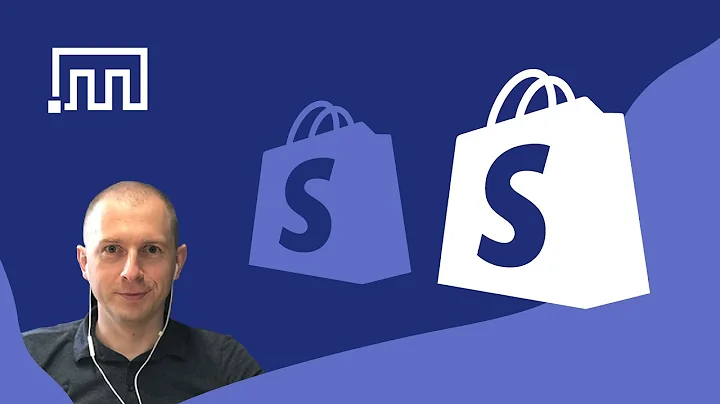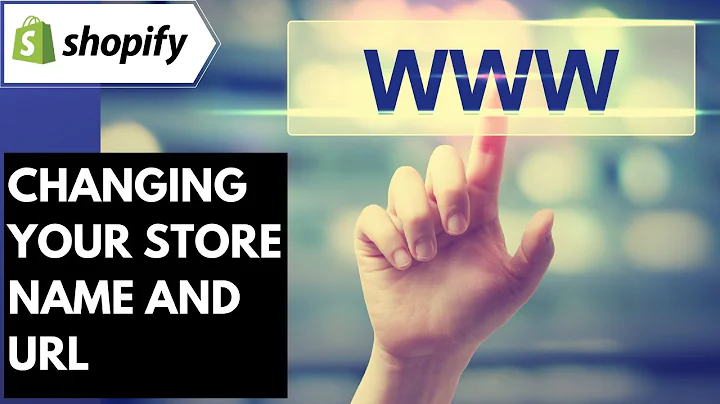Choosing the Best E-commerce Platform: Shopify or WooCommerce?
Table of Contents:
- Introduction
- Shopify vs. WooCommerce: A Comparison
2.1 Ease of Use
2.2 Design and Customization
2.3 E-commerce Features
2.4 Hosting and Maintenance
2.5 Pricing
- Why Shopify is the Better Platform
3.1 Customization Options
3.2 Ease of Use
3.3 Drop Shipping Integration
3.4 Subscriptions and Tiers
3.5 Payment Options
- Conclusion
Shopify vs. WooCommerce: Which E-commerce Platform is Right for You?
When it comes to starting an online store, choosing the right e-commerce platform is crucial. Two popular choices in the market are Shopify and WooCommerce. In this article, we will compare the two platforms and discuss their features, ease of use, customization options, hosting and maintenance, pricing, and more. By the end of this article, you'll have a better understanding of which platform suits your needs best.
Shopify vs. WooCommerce: A Comparison
Before diving into the details, let's take a look at the key factors to consider when comparing Shopify and WooCommerce.
Ease of Use
One of the significant benefits of Shopify is its user-friendly interface and ease of use. It provides a drag-and-drop website builder, pre-designed templates, and a straightforward setup process, making it ideal for beginners. WooCommerce, on the other hand, is a WordPress plugin that requires a WordPress website for use. While it offers flexibility, it has a learning curve and requires more technical knowledge.
Design and Customization
Shopify offers a wide range of professionally designed themes that can be customized to match your brand. It provides a user-friendly theme editor, allowing you to modify layouts, fonts, colors, and more. WooCommerce, being integrated with WordPress, gives you complete control over the design and customization of your store. You can choose from numerous WordPress themes and use plugins and coding to tailor your store's appearance and functionality.
E-commerce Features
Both Shopify and WooCommerce offer a set of built-in e-commerce features. Shopify provides payment gateways, inventory management, order fulfillment, abandoned cart recovery, and marketing tools. It also allows you to extend your store's functionality with apps and integrations from the Shopify app store. WooCommerce offers similar features, with additional functionalities depending on the plugins you install.
Hosting and Maintenance
Shopify includes hosting in its package, taking care of software updates, security, and backups. This eliminates the need for a separate hosting provider and reduces technical responsibilities. WooCommerce requires you to find your own hosting provider and manage your website's maintenance, including updates, security, and backups. While it offers more control, it requires additional technical knowledge and responsibilities.
Pricing
Shopify operates on a subscription-based model, offering different plans with varying features and transaction fees. The pricing includes hosting and security, simplifying budgeting for your online store. WooCommerce itself is a free plugin, but you need to consider costs like hosting, domain, SSL certificates, and additional plugin expenses. The overall cost depends on your chosen hosting provider and plugins.
Why Shopify is the Better Platform
After comparing the two platforms, Shopify emerges as the better option for several reasons:
Customization Options: Shopify offers a massive library of both free and premium themes that allow your business to stand out. The drag-and-drop website builder and intuitive editing menu make it easy to customize your website according to your preferences.
Ease of Use: Shopify is known for its user-friendly interface, making it accessible for users of all skill levels. You can focus on running your online store without worrying about technical aspects like hosting and maintenance.
Drop Shipping Integration: Shopify seamlessly integrates with most suppliers for drop shipping, automating the process of uploading products, quantities, and descriptions to your store. It also handles stock management, displaying sold-out items and providing a professional outlook to your business.
Subscriptions and Tiers: Shopify offers different subscription tiers, allowing you to scale your online store as your business grows. Each tier comes with additional features and staff accounts, providing flexibility and customization options for your store.
Payment Options: Unlike other e-commerce platforms, Shopify does not charge a percentage of each transaction. They only charge a two percent fee when the payment is processed through a third-party payment service. Shopify also offers Shopify Payments, which eliminates transaction fees for specified payment methods.
In conclusion, Shopify is the preferred e-commerce platform for its customization options, ease of use, drop shipping integration, flexible subscriptions, and transparent pricing. Whether you're a beginner or a well-established business, Shopify provides the necessary tools and features to help you succeed in the online marketplace.
Highlights:
- Shopify and WooCommerce are popular e-commerce platforms for starting an online store.
- Shopify offers a user-friendly interface, pre-designed templates, and a straightforward setup process.
- WooCommerce requires a WordPress website and offers more customization options and flexibility.
- Both platforms provide essential e-commerce features like payment gateways and inventory management.
- Shopify includes hosting and maintenance, while WooCommerce requires finding a separate hosting provider.
- Shopify operates on a subscription-based model with various plans, while WooCommerce is a free plugin with additional expenses.
- Shopify stands out as the better platform due to its customization options, ease of use, drop shipping integration, flexible subscriptions, and payment options.
FAQ:
Q: Is Shopify suitable for beginners?
A: Yes, Shopify is known for its user-friendly interface and ease of use, making it suitable for beginners with no coding knowledge.
Q: Does WooCommerce offer more customization options?
A: Yes, WooCommerce provides more customization options as it integrates with WordPress, allowing you to tailor your store's appearance and functionality.
Q: Does Shopify handle stock management?
A: Yes, Shopify automatically handles stock management and can display sold-out items to customers based on available quantity.
Q: Does Shopify charge transaction fees?
A: Shopify charges a two percent fee for transactions processed through third-party payment services. However, Shopify Payments eliminates transaction fees for specified payment methods.
Q: Can Shopify accommodate different business sizes?
A: Yes, Shopify offers multiple subscription tiers and customizable plans, catering to businesses of all sizes and needs.


















